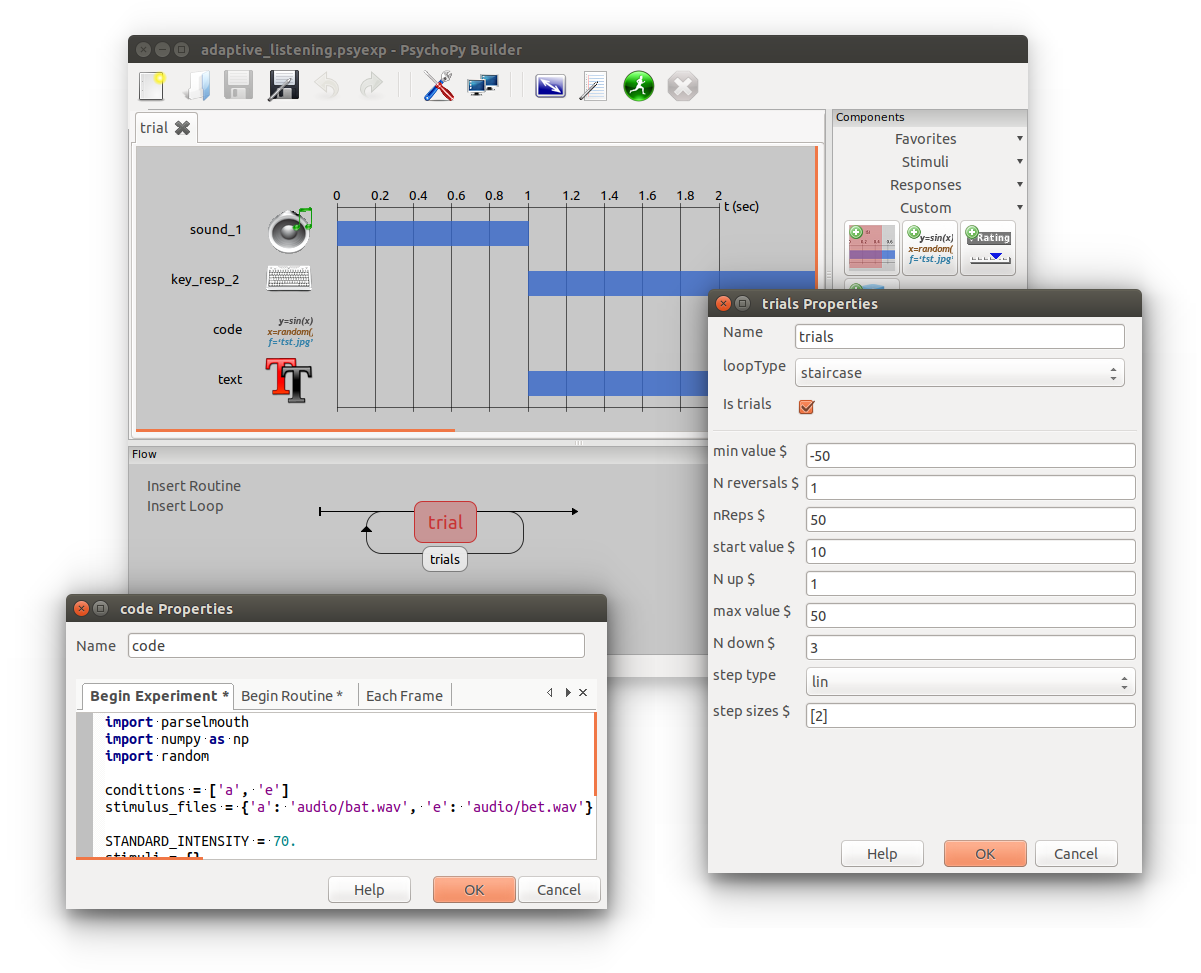
I think that in the short term I'll prepare csv files with the information for the loops and select a few at random to upload them for my different blocks. Thanks! I'll read up on Javascript (never used it until now).

I guess that in that case, I could just create a large set of text files (say 500) and select a value at random for each subject using an inline_javascript object (vars.fileid = Math.floor((Math.random() * 500) + 1). Solution 3 would certainly be ideal in that case, though to run the experiment through OSWeb, using the subject ID number to select a text file with the trials list wouldn't be an option since the task is running on the client machine and so it can't know how many participants have already taken part to use an incremental subject number procedure. My concern is what might happen for complex conditions where the program might hang and crash. I've just tried solution 1 with a simple condition and it works really well. Solutions 1 and 3 should solve my problem (I don't think Solution 2 would as, if I understand correctly, python inline_script is not supported by OSWeb and so it would not be adequate for running the experiment online. And then dynamically using these variables to specify the file to import in the loop item. Can the path and file name be specified dynamically? For example, setting up variables such as StimFileBlock1 = "stim" + subect_nr + "B1.csv" StimFileBlock2 = "stim" + subect_nr + "B2.csv" etc. I've seen that the trials list / loop item can be populated from a file instead of a table. (3) Importing trials information from text file into a loop item dynamically Is there a way to read the content of a text file (e.g., csv), to commit it to memory arrays and then populate a loop item table with that information? For example, reading stimulus and correct response information for 20 trials from a text file, and then populate a 10 trials loop item table with information for trials 1 to 10 on the first execution of the loop, and with information from trials 11 to 20 on the second execution of the loop? (2) Reading from text file and populating a loop item table Or can OSWeb handle javascript containing for, do/while loops and some functions such as Math.floor, Math.random, and array manipulations? Is there a method to achieve my aim through coding that would work in OSWeb?

Is that correct? (if it is, then I guess it rules a Javascript solution too). As for Javascript code, I understand that, within Open Sesame, it is restricted to defining and reading from variables.
PSYCHOPY LOOP TYPE RANDOM NO REPEAT CODE
I understand that Python code could take care of randomization, but this would not be suitable to run the experiment online as OSWeb does not integrate python code objects, so I guess that rules out Python code. I thought of the following options and have doubts or questions related to each:
PSYCHOPY LOOP TYPE RANDOM NO REPEAT HOW TO
I'm new to OpenSesame and OSWeb, and so far I haven't been able to work out how to achieve a similar result. So far I've done my experiments using E-Prime, using EBasic to write code, or when the quasi randomization is so complex that the program can get stuck without a solution, I've written an application capable of batching stimuli files that fulfill all the conditions, and then have the task import these, commit all information to variable arrays and then populate the trials list at the onset of the experiment.

I use such quasi randomization to create a unique trials list order for each participant.

One of these requirements is the generation of list of trials following sometimes demanding quasi randomization conditions (e.g., making sure that not more than two trials of such or such condition are presented consecutively, that such or such stimulus is not repeated on consecutive trials etc.). I'm currently exploring Open Sesame and OSWeb as a way of running experiments online, trying to work out whether it can handle the specific requirements my experiments typically have.


 0 kommentar(er)
0 kommentar(er)
